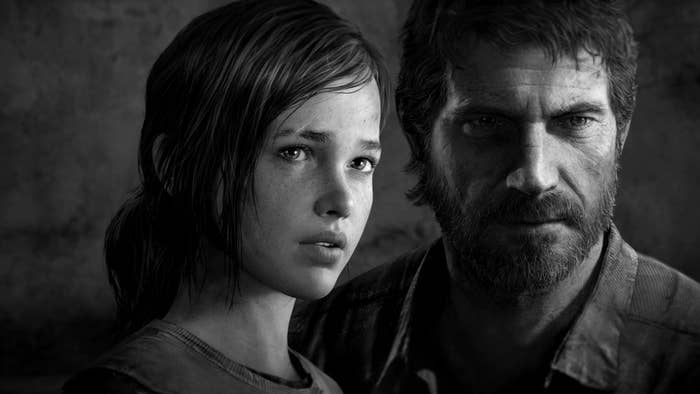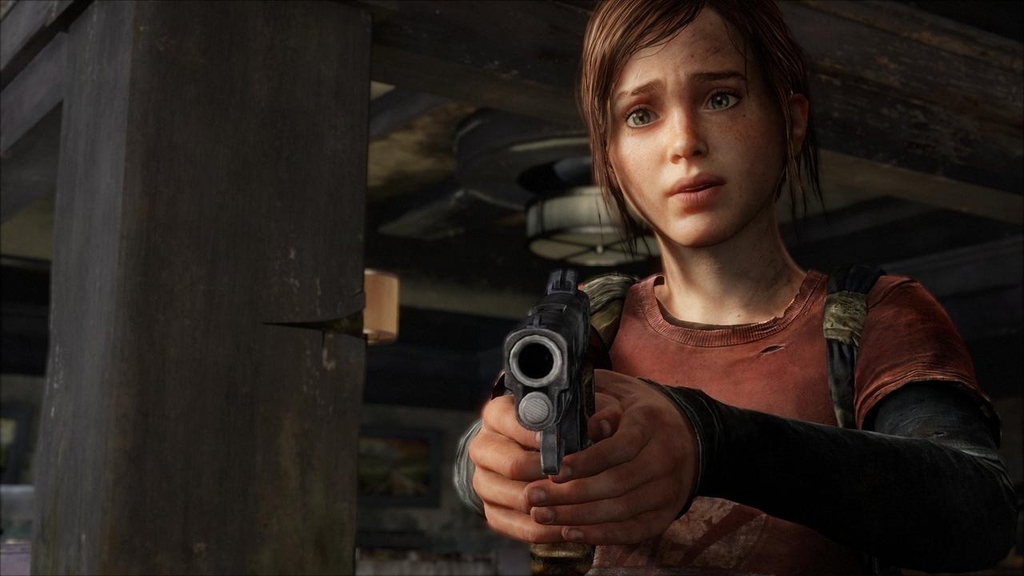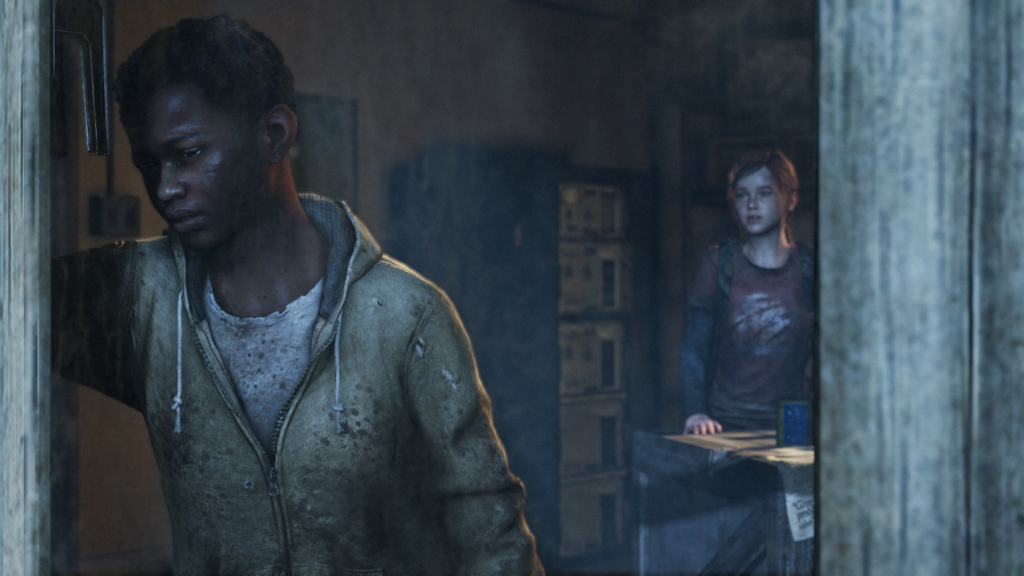6/14: This piece was published last week. The Last of Us is out today.

For more than a decade, major game developers have undertaken a strange and grueling quest: to wring convincing emotion from computer-generated actors. As anyone who plays games will know, the results along the way have been poor. Fans euphemistically refer to the "Uncanny Valley", but that term hardly conveys the dead eyes, action-figure gestures, any-which-way lip twitching, and sociopath pauses that characterize virtual "acting". Add to the problems of human representation incompetent dialogue, plotting, and virtual camerawork and you have a basic understanding of why the oft-cited ambition of game makers to tell mature stories strikes so many adult gamers as a fantasy.
The consequences of this quest have occasionally been dire. When we look back at the history of Square, one of the proud software developers in gaming, we will remember the 2001 Final Fantasy X, with its introduction of charmless virtual actors, as the moment the company began its long slide into irrelevance. The list of potentially great games ruined for adults by bad virtual acting and storytelling is long indeed.

I'm not picking on game developers. Making computer-generated creatures plausible emoters isn't a problem unique to this medium—it's a problem unique to computers. Remember the accolades showered on James Cameron's Avatar in 2008 simply for creating digital actors that didn't make the audience start laughing? Simply: that movie cost half a billion dollars. It's just a hard thing to do. Given the natural strengths of games—interactivity and engagement—the pursuit of convincing virtual actors could be considered a massive waste of resources. Imagine the games we might have had over the past decade-plus if the money and talent spent on the aggregated costs of virtual acting had been invested in game design; AAA games might not be stuck in their current creative morass.
But then we wouldn't have The Last of Us, the new game from Naughty Dog, which comes out next week. It's the first video game I have ever played that features virtual acting good enough to successfully tell a story for adults. At no point in the twelve hours of the game, which is about a grizzled smuggler's relationship with the teenage girl he is paid to protect from zombies and bandits on a journey across a blasted America, did I laugh at the wrong moment, skip a cut scene, cringe with embarrassment, or, worst of all, lose interest. There were four or five moments of plot throughout the game where I was fully compelled, engaged to the point of involuntarily placing my hand over my gasping mouth. When I finished the game, I thought to myself, wow, that was a good story, told competently. I don't mean to damn The Last of Us with faint praise. Competent genre storytelling with virtual actors is a major, perhaps historically significant accomplishment for the medium.

And here's why: narrative games don't need Academy Award-caliber acting to achieve their goals (although voice actors as good as Troy Baker and Ashley Johnson in the lead roles of Joel and Ellie certainly help). All the scripted acting in games needs to do is to reinforce, or not actively detract from everything else that happens in the player-controlled part of the game. The Last of Us certainly passes that test. Joel and Ellie are two of the most convincingly rendered virtual actors in the history of games. They certainly don't look real, but they are a noticeable improvement on the virtual actors in the Mass Effect series, games with similarly great writing, voice acting, and narrative aspirations that were undercut by their visuals.
But it also goes beyond acting and plot not undermining gameplay. There are a few moments in the second half of the game, the specifics of which I am not allowed to discuss per Sony's omerta, in which a cut scene segues into a gameplay sequence in a way that actively enriches both. One such transition produced in me something I've never before experienced in a narrative game: a sense of the sublime.

Competent acting and storytelling invest the player in the gameplay itself. It seems so obvious, and yet so few games have ever pulled it off: When you care about the characters in the game, you want to keep playing, in the same way you want to binge on The Sopranos to see what happens to Tony, or keep reading A Game of Thrones to see what happens to Ned.
And it turns out that good storytelling is a salve for so many of the issues that plague big budget games. The violence of The Last of Us doesn't feel gratuitous because you care about the characters. The zombie-game clichés don't grate because you care about the characters. The vestigial gaminess (Joel can only upgrade his equipment on certain special tables placed at regular intervals throughout the game even though there are flat surfaces everywhere; there is always a wooden pallet nearby when Ellie, who cannot swim, needs to cross a body of water, etc.) feel forgivable because you care about the characters.
(And isn't it interesting that the two games in the past year that have created fully sympathetic characters are both zombie games? I'm referring, of course, to Lee and Clementine in The Walking Dead, who I think are probably too cartoony to be considered virtual actors. This genre, as stale as it can seem, forces drama on its characters in a way that is both insistent and intimate. That latter piece is what's missing in most game drama.)
So, yes The Last of Us is a remarkable game, the best I've played this year, and it feels almost flamboyantly good compared to the rest of the AAA dreck on the market. Here's the thing: I'm not sure if what this game does is a solution for anyone else. Naughty Dog have been working towards this moment for a long time, at least since the beginning of this console generation with the first Uncharted game in 2007. They have access to Sony's war chest. They have, probably, the best writers in the business. And they have an abiding love and deep understanding of popular culture outside of the world of videogames, while still knowing what makes games great. That's rare and maybe unique—most good developers only have the latter and one or two only have the former.
In other words, don't expect games with this kind of narrative quality to flood the market anytime soon. The Last of Us is the first of its kind, and I expect will be the only one of its kind, for quite a while.
